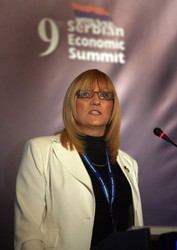- Serbia
Get to know Serbia
- Citizens
Culture and science
Health services
Pension and disability insurance
- Business
Employment
Economy
- Media
- Government
- Contact
Keep in touch
Contact form
Back
Keepin touch
Whether you have a question, comment, suggestion or any problem in the purview of the government, send us your message and we will try to respond as soon as possible. If your problem is not in our purview, we will forward your message to the relevant institution.
Q:
A:
€2.13bn invested in 2,500 projects through NIP
Belgrade,
3 November 2009
Minister for the National Investment Plan (NIP) Verica Kalanovic stated that since 2006 a total of €2.13 billion has been invested through NIP in approximately 2,500 projects.
On the second day of the 9th Serbian Economic Summit Kalanovic said that in the first two years €1.5 billion was invested, while in 2008 investments amounted to €500 million, adding that this year around €130 million was invested in 325 projects.
She said the priority in 2010 will be the shift to programme financing for projects, since currently a portion of the funds remains unused because all investments are related with the budgetary year, adding that NIP goals will also include more evenly balanced regional development.
State Secretary of Economy and Regional Development Vesna Arsic stressed that Serbia plans to join the World Trade Organisation (WTO) in 2010, noting that talks with the WTO are already underway.
Serbia has been fulfilling the conditions for joining the WTO and early in 2010 it will start implementing free trade agreements with Turkey, Switzerland, Norway, Iceland and Lichtenstein and members of the European Free Trade Association (EFTA), she explained.
The Minister added that these agreements will enable Serbia to start exporting to their markets, while the liberalisation of imports will be taken one step at a time.
She also said that in 2010 Serbia will take over the annual CEFTA presidency and its goal will be the liberalisation of the services market in the region.
Arsic recalled that Serbia also signed free trade agreements with Russia and Belarus, thus gaining access to a market of around 160 million people.
State Secretary of Economy and Regional Development Nebojsa Ciric announced that in 2010 the state will continue implementing the programme of support to the economy, because next year is also expected to be difficult.
Ciric voiced his expectation that €1.2 billion will have been injected into the economy this year for the improvement of liquidity, securing jobs, stimulating production and encouraging export.
He said €815 million from subsidised loans has so far been invested in the real sector, stressing that Serbia will most likely end this year with the same level of foreign direct investments as in 2008.
The second half of 2009 shows that with good infrastructure and stimulating programmes the state can attract foreign investments regardless of the crisis, he concluded.
She said the priority in 2010 will be the shift to programme financing for projects, since currently a portion of the funds remains unused because all investments are related with the budgetary year, adding that NIP goals will also include more evenly balanced regional development.
State Secretary of Economy and Regional Development Vesna Arsic stressed that Serbia plans to join the World Trade Organisation (WTO) in 2010, noting that talks with the WTO are already underway.
Serbia has been fulfilling the conditions for joining the WTO and early in 2010 it will start implementing free trade agreements with Turkey, Switzerland, Norway, Iceland and Lichtenstein and members of the European Free Trade Association (EFTA), she explained.
The Minister added that these agreements will enable Serbia to start exporting to their markets, while the liberalisation of imports will be taken one step at a time.
She also said that in 2010 Serbia will take over the annual CEFTA presidency and its goal will be the liberalisation of the services market in the region.
Arsic recalled that Serbia also signed free trade agreements with Russia and Belarus, thus gaining access to a market of around 160 million people.
State Secretary of Economy and Regional Development Nebojsa Ciric announced that in 2010 the state will continue implementing the programme of support to the economy, because next year is also expected to be difficult.
Ciric voiced his expectation that €1.2 billion will have been injected into the economy this year for the improvement of liquidity, securing jobs, stimulating production and encouraging export.
He said €815 million from subsidised loans has so far been invested in the real sector, stressing that Serbia will most likely end this year with the same level of foreign direct investments as in 2008.
The second half of 2009 shows that with good infrastructure and stimulating programmes the state can attract foreign investments regardless of the crisis, he concluded.
-
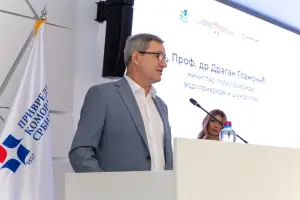 Belgrade, 11 August 2025
Belgrade, 11 August 2025Support for agricultural projects worth RSD 750 million
-
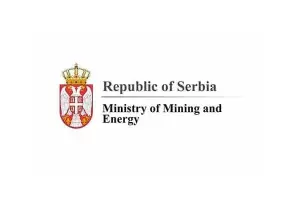 Belgrade, 21 July 2025
Belgrade, 21 July 2025Construction of oil pipeline with Hungary to begin early next year
-
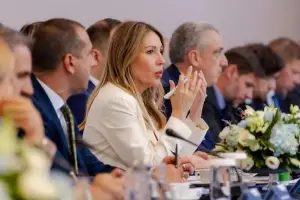 Belgrade/Athens, 17 July 2025
Belgrade/Athens, 17 July 2025Serbia continues to align with EU in field of energy
-
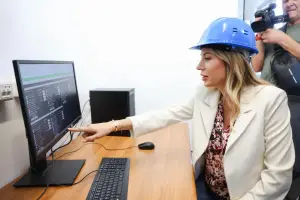 Kostolac, 14 July 2025
Kostolac, 14 July 2025First solar power plant Petka in Kostolac put into trial operation
-
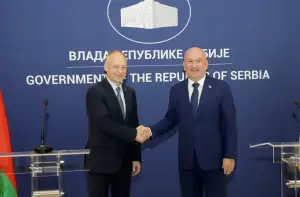 Belgrade, 11 July 2025
Belgrade, 11 July 2025Potential for improving cooperation with Belarus in many areas
-
 Požega, 5 July 2025
Požega, 5 July 2025Section of Pakovraće - Požega highway officially opened
-
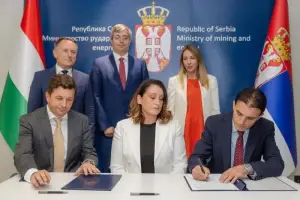 Belgrade, 2 July 2025
Belgrade, 2 July 2025Technical specifications defined for Serbia-Hungary oil pipeline
-
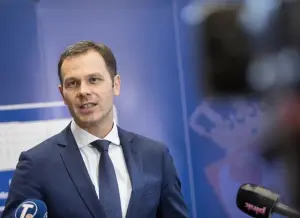 Belgrade, 30 June 2025
Belgrade, 30 June 2025IMF confirms Serbia successfully implementing all agreed reforms
-
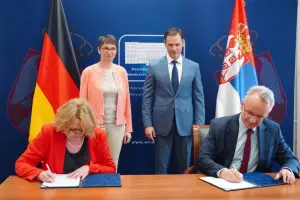 Belgrade, 27 June 2025
Belgrade, 27 June 2025Double Taxation Avoidance Agreement with Germany signed
-
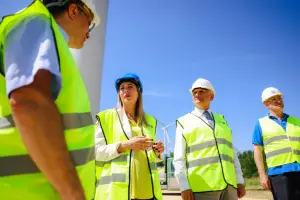 Kostolac, 25 June 2025
Kostolac, 25 June 2025Construction of Kostolac wind farm nearing completion

